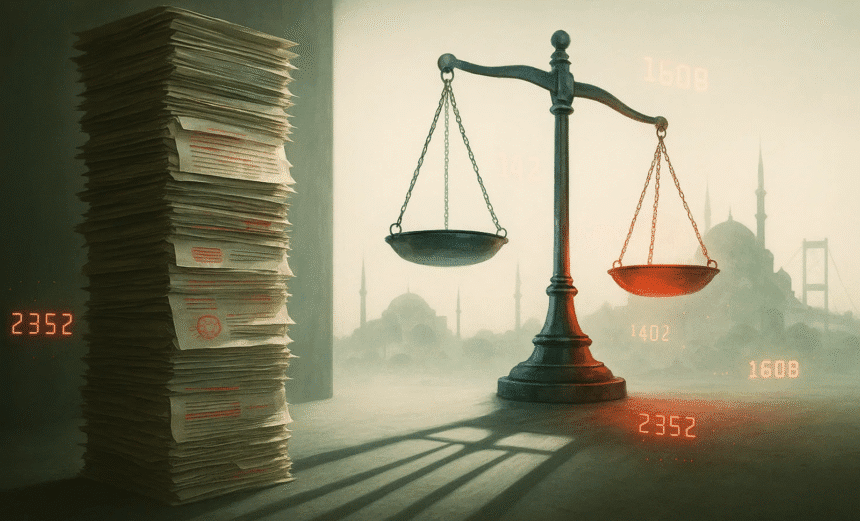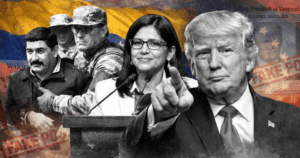Istanbul’s political landscape was shaken on 11 November 2025 when the chief public prosecutor requested an unprecedented 2,352-year prison sentence for Ekrem İmamoğlu, the mayor of Istanbul and one of Turkey’s most prominent opposition leaders. The indictment, filed in Ankara but rooted in alleged offences committed in Istanbul, marks one of the most dramatic escalations in Turkey’s ongoing struggle between the ruling establishment and the opposition. İmamoğlu, a senior figure in the Republican People’s Party (CHP), has long been viewed as a potential challenger to President Recep Tayyip Erdoğan, and his legal troubles are seen by many observers as deeply intertwined with the country’s political tensions. The indictment, spanning nearly 3,900 pages, outlines 142 separate charges and names 402 suspects, painting a broad picture of what prosecutors allege is a multi-layered criminal organisation operating under the mayor’s leadership.
According to the prosecutor’s office, the charges include bribery, fraud, extortion, money laundering, abuse of office, and tender manipulation, all allegedly committed during İmamoğlu’s tenure as mayor. The state claims that the activities resulted in losses of more than 160 billion Turkish lira, approximately US$3.8 billion, to public finances. The extraordinary length of the proposed sentence comes from the accumulation of dozens of individual charges, which prosecutors say justify the multi-century figure. Although the 2,352-year term is a request rather than a final judicial decision, it reflects the severity with which authorities are handling the case. It signals a potentially decisive phase in Turkish political history.
The developments occur against a backdrop of long-standing friction between the ruling government and the CHP. İmamoğlu, who won the Istanbul mayoralty twice in 2019 after the government annulled his first victory, has been a symbolic and strategic threat to the ruling bloc. His political rise shifted Turkey’s urban political map, giving the opposition control over its largest and economically most important city. This made him a central figure in the lead-up to future national elections. The CHP has condemned the latest charges as “a judicial assault on democracy,” arguing that the prosecution aims to eliminate a popular political rival. International analysts have echoed these concerns, noting a pattern of cases targeting opposition mayors, especially in metropolitan municipalities governed by the CHP.
Reactions in Turkey have been swift and polarised. Supporters of the mayor view the indictment as part of a broader campaign to suppress dissent, pointing to the unusually large sentence as evidence of political motivation. Many compare it to past prosecutions that have sidelined prominent opposition voices. Mass protests broke out in Istanbul earlier in 2025 when İmamoğlu was detained, and similar demonstrations are expected to intensify as the case proceeds. On the other hand, government officials maintain that the judiciary acts independently and insist the charges reflect genuine corruption concerns, not political calculations. They argue that no public official should be immune from the law, regardless of their political stature.
The indictment must still be accepted by the court, which will then set a trial date. If the court upholds even a fraction of the proposed charges, İmamoğlu could face not only imprisonment but also political disqualification, altering the trajectory of Turkey’s political future. The severity of the request also carries symbolic weight, highlighting the deepening divide between political forces and raising questions about the fairness, transparency, and independence of the judicial process. For many, this case will serve as a defining test of Turkey’s rule of law at a time of heightened political sensitivity.
The international community is watching closely. European officials, human rights organisations, and democracy-monitoring groups have expressed concern that the indictment may further strain Turkey’s already fragile democratic institutions. Analysts predict that the proceedings could influence Turkey’s relationship with Western partners, impact economic confidence, and fuel domestic unrest. The mayor’s supporters argue he is being targeted precisely because he represents a new political alternative capable of reshaping national politics. Meanwhile, the government continues to frame the charges as a necessary step to combat corruption and restore financial integrity to municipal operations. As Turkey awaits the court’s decision, one thing is clear: the case of Ekrem İmamoğlu has become more than a legal battle; it is a defining moment in the struggle over the country’s democratic future.















